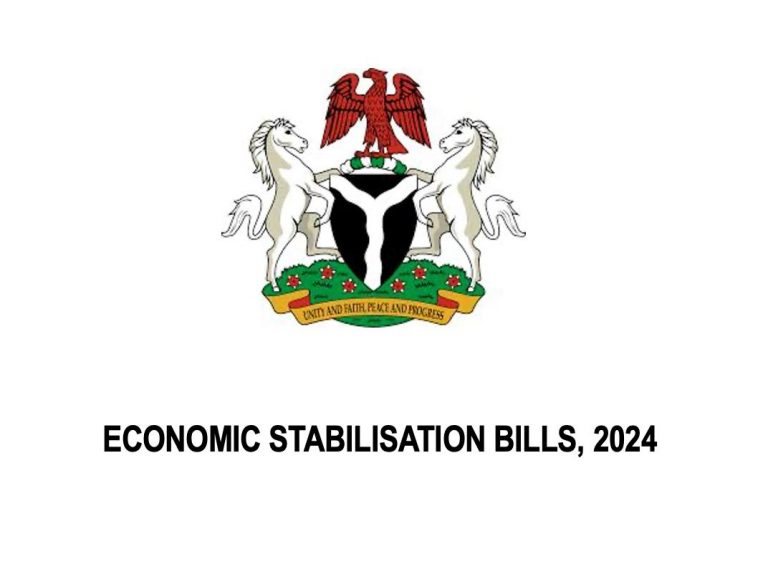In a significant move aimed at revitalizing Nigeria’s economy, the Federal Executive Council (FEC) has approved the Economic Stabilization Bills (ESB). This decision, finalized during the 18th FEC meeting presided over by President Bola Tinubu at the Aso Chambers of the State House in Abuja, represents a crucial step in the government’s Accelerated Stability and Advancement Plan.
The ESB is designed to amend over 15 existing tax, fiscal, and establishment laws, thereby enhancing economic stability across the nation. These proposed changes are expected to tackle pressing economic challenges, including inflation, currency depreciation, and high unemployment rates. By promoting fiscal discipline and alleviating poverty, the government aims to lay the groundwork for sustainable economic growth.
Taiwo Oyedele, the chairman of the Presidential Fiscal Policy and Tax Reforms Committee, took to his social media account to outline the key amendments being proposed. He emphasized that these reforms are pivotal for stabilizing Nigeria’s economy and creating a conducive environment for long-term, inclusive growth.
The proposed amendments encapsulate ten significant changes aimed at reshaping Nigeria’s fiscal landscape. These include:
1.Income Tax Law Amendments**: These changes aim to facilitate greater employment opportunities for Nigerians, particularly within the global value chain and digital economy sectors.
2. Zero-Rated VA: The introduction of zero-rated Value Added Tax (VAT) and an improved incentive regime is designed to stimulate exports of goods, services, and intellectual property.
3. Investment in the Gas Sector: Proposed amendments will simplify local content requirements, making it easier for investments to flow into the gas sector and enhancing competitiveness.
4. Foreign Exchange Regime Reform: The reforms aim to enhance the Central Bank of Nigeria’s (CBN) regulatory powers, unlock additional foreign exchange liquidity, strengthen the naira, and achieve rates convergence.
5. Tax Relief for Employers Private sector employers will benefit from tax reliefs related to wage awards and transport subsidies for their employees, encouraging job creation.
6. Support for Incremental Employment: Companies that generate incremental employment and retain these employees for a minimum of three years will receive tax incentives.
7. Fiscal Discipline The reforms advocate for improved remittances from government agencies and corporations to the Consolidated Revenue Fund of the Federal Government, promoting responsible fiscal management.
8.Collaboration with States: There will be efforts to suspend certain taxes on small businesses and vulnerable populations, including road haulage levies and other transportation-related charges.
9. Tax Identification Consolidation and Collaboration (TICC: This initiative aims to expand the tax base and create a more level playing field for businesses across sectors.
10. Funding for Students Loan Scheme: Additional funding will be allocated to support the Students Loan Scheme, providing greater access to education financing.
Following the FEC’s approval, these Economic Stabilization Bills will be forwarded to the National Assembly for consideration and potential passage into law. If enacted, these changes are anticipated to play a crucial role in stabilizing Nigeria’s economy and fostering sustainable growth
The announcement of these proposed amendments has sparked considerable discussion among citizens and stakeholders. Many are optimistic about the potential positive impacts these reforms may bring to the country’s fiscal policies and overall economic resilience.
Social media reactions have varied, with users expressing a range of opinions. One user, identified as Shievo, highlighted the government’s intent to support market women and vulnerable populations, while another user, Kazeem Adeshina, emphasized the importance of suspending certain taxes to aid small businesses during the economic recovery phase.
Critics, however, have raised concerns regarding the practicality of these policies and the need for measures to combat corruption. Questions have also been posed about the timelines for implementation and the effectiveness of these reforms in creating competition across various sectors, particularly in the oil industry.
Overall, the Federal Executive Council’s approval of the Economic Stabilization Bills marks a pivotal moment in Nigeria’s quest for economic recovery and growth. The success of these initiatives will depend not only on legislative approval but also on the government’s commitment to effective implementation and ongoing dialogue with the public and